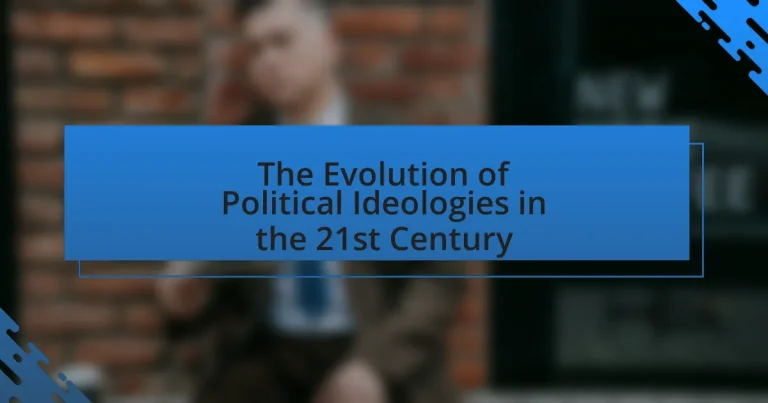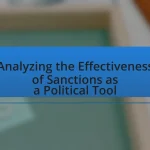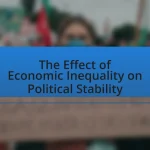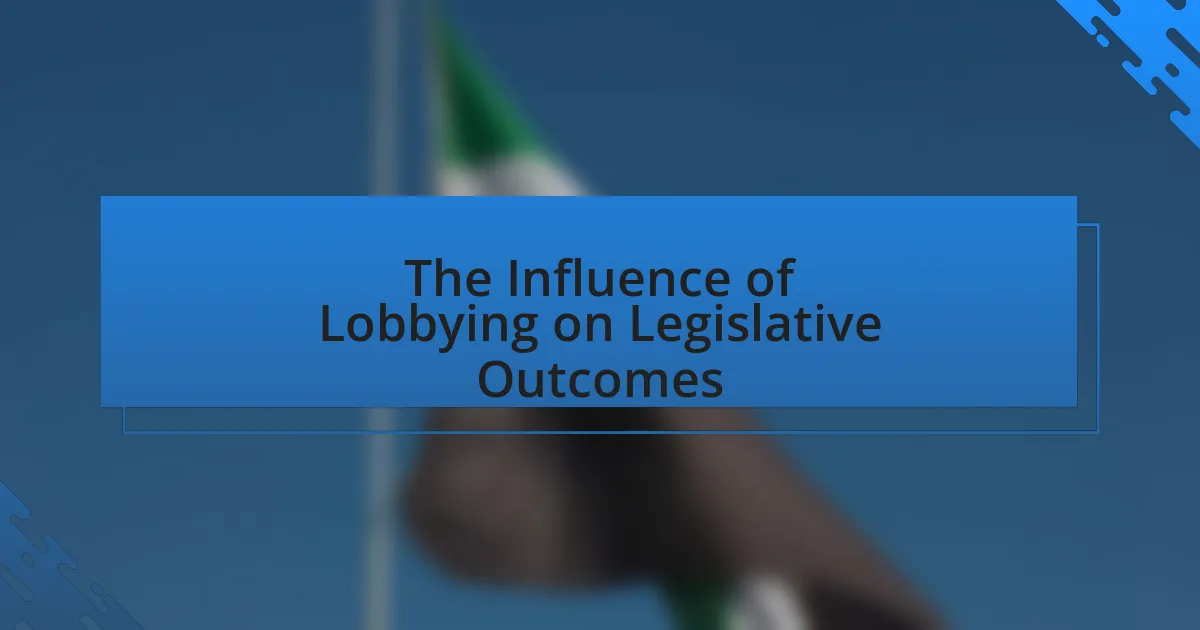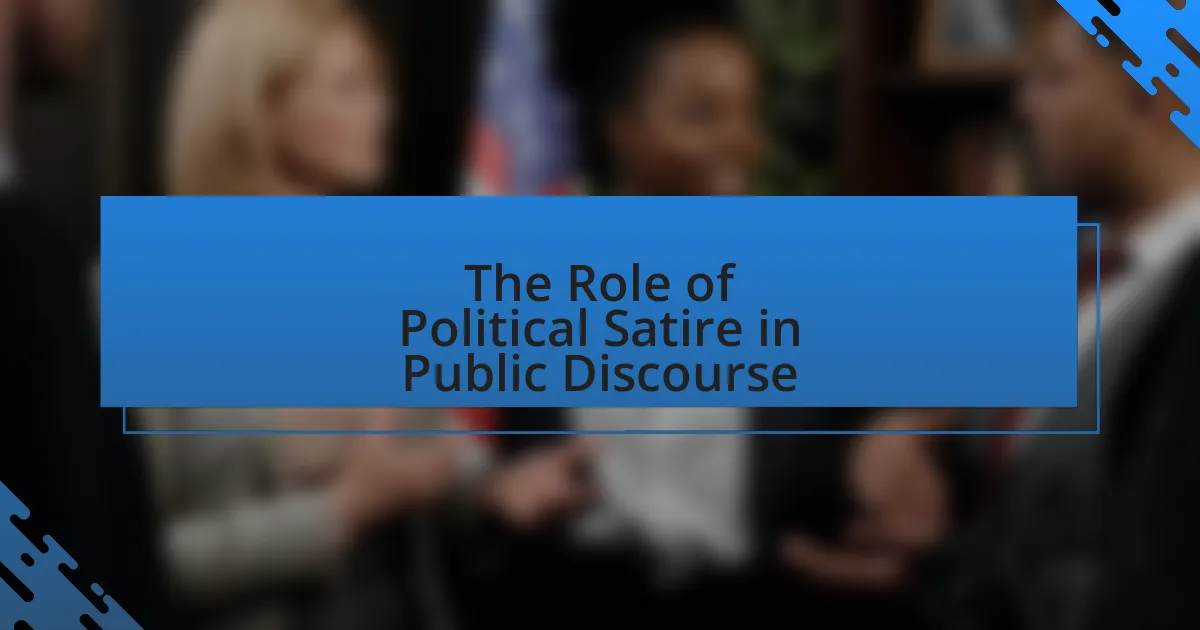The article examines the evolution of political ideologies in the 21st century, highlighting key movements such as populism, environmentalism, and digital socialism. It discusses how traditional ideologies have adapted to contemporary issues, including social justice and climate change, and the impact of globalization and technological advancements on political thought. The article also explores the significance of identity politics, economic factors, and social movements in shaping modern ideologies, as well as the challenges these evolving beliefs pose for democracy and global governance. Additionally, it addresses strategies for counteracting divisive ideologies and the importance of civic engagement in influencing political landscapes.
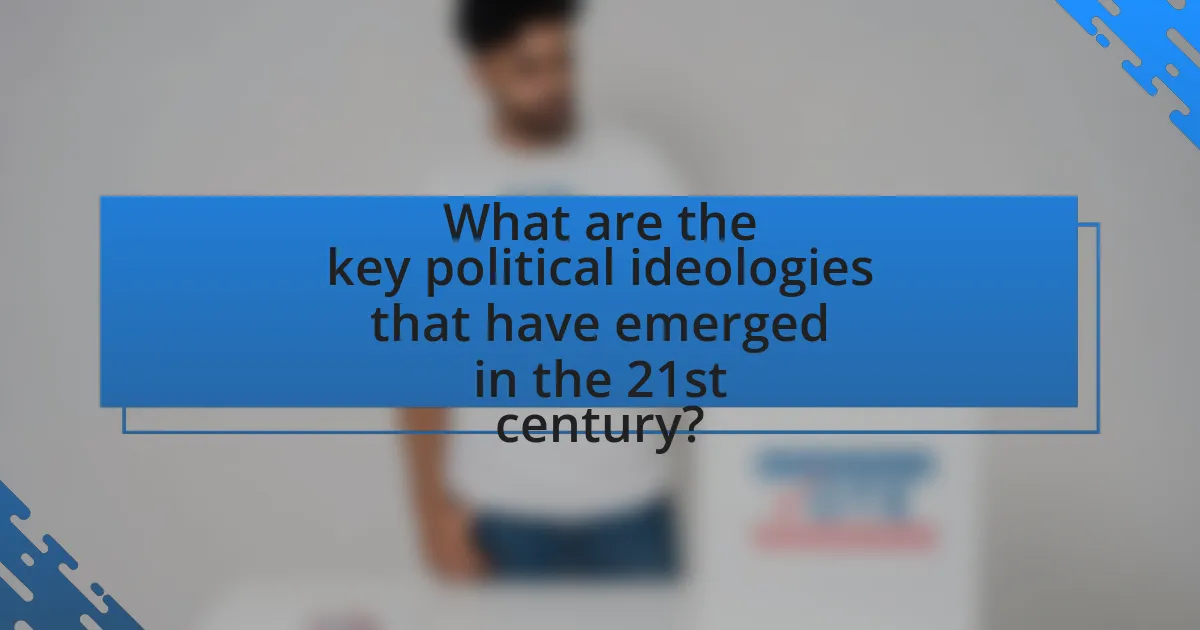
What are the key political ideologies that have emerged in the 21st century?
The key political ideologies that have emerged in the 21st century include populism, environmentalism, and digital socialism. Populism has gained traction globally, characterized by leaders who claim to represent the “common people” against the elite, as seen in movements across Europe and the Americas. Environmentalism has evolved into a significant political force, emphasizing climate action and sustainability, highlighted by the rise of Green parties and youth-led movements like Fridays for Future. Digital socialism has emerged in response to the digital economy, advocating for the redistribution of wealth generated by technology and the protection of workers’ rights in the gig economy, as evidenced by discussions surrounding universal basic income and labor rights reforms. These ideologies reflect the changing political landscape shaped by globalization, technological advancements, and social movements.
How have traditional ideologies adapted to contemporary issues?
Traditional ideologies have adapted to contemporary issues by integrating modern values such as social justice, environmental sustainability, and inclusivity into their frameworks. For instance, liberalism has evolved to address climate change through policies promoting renewable energy and sustainable practices, reflecting a growing concern for environmental issues among the electorate. Similarly, conservatism has shifted to embrace aspects of social conservatism while also recognizing the importance of economic equity, as seen in the rise of “compassionate conservatism” which seeks to balance traditional values with social welfare initiatives. These adaptations are evident in political platforms and legislation that respond to the demands of a diverse and rapidly changing society, demonstrating that traditional ideologies are not static but rather dynamic and responsive to contemporary challenges.
What role does globalization play in shaping these ideologies?
Globalization significantly influences the shaping of political ideologies by facilitating the exchange of ideas, cultures, and economic practices across borders. This interconnectedness allows for the rapid dissemination of democratic values, human rights concepts, and neoliberal economic policies, which can reshape national ideologies. For instance, the spread of social media platforms has enabled grassroots movements to gain traction globally, as seen in the Arab Spring, where citizens mobilized for democratic reforms influenced by global democratic ideals. Additionally, globalization has led to the rise of transnational organizations that promote specific ideologies, such as environmentalism and social justice, further impacting local political landscapes.
How do technological advancements influence political thought?
Technological advancements significantly influence political thought by altering communication methods, shaping public opinion, and enabling new forms of political engagement. For instance, the rise of social media platforms has transformed how political messages are disseminated and consumed, allowing for rapid information sharing and mobilization of grassroots movements, as seen in events like the Arab Spring. Additionally, advancements in data analytics have enabled political campaigns to target voters more effectively, influencing electoral strategies and policy discussions. Research by the Pew Research Center indicates that 69% of Americans believe social media plays a crucial role in shaping political opinions, highlighting the profound impact of technology on political discourse.
What new political movements have gained prominence in the 21st century?
New political movements that have gained prominence in the 21st century include populism, environmentalism, and social justice movements. Populism has surged globally, characterized by leaders like Donald Trump in the United States and Jair Bolsonaro in Brazil, who appeal directly to the public against established elites. Environmentalism has also gained traction, particularly with movements like Fridays for Future, initiated by Greta Thunberg, which mobilizes youth around climate action. Additionally, social justice movements, such as Black Lives Matter, have highlighted issues of racial inequality and police violence, influencing political discourse and policy changes worldwide. These movements reflect a shift in political ideologies, emphasizing grassroots activism and direct engagement with pressing societal issues.
How do populism and nationalism differ from previous ideologies?
Populism and nationalism differ from previous ideologies primarily in their focus on identity and direct appeal to the masses. Unlike traditional ideologies that often emphasize class struggle or economic systems, populism centers on the dichotomy between “the people” and “the elite,” while nationalism prioritizes the interests of a specific nation or ethnic group. This shift is evident in the rise of leaders who leverage social media to mobilize support, bypassing established political structures, as seen in the campaigns of figures like Donald Trump and Jair Bolsonaro. These movements often capitalize on economic discontent and cultural anxieties, reflecting a departure from the more abstract, theoretical frameworks of earlier ideologies such as socialism or liberalism.
What impact do social movements have on political ideologies?
Social movements significantly influence political ideologies by challenging existing norms and advocating for change. They often bring attention to social issues, mobilizing public opinion and prompting political discourse. For instance, the Civil Rights Movement in the United States during the 1960s reshaped liberal ideologies by emphasizing equality and justice, leading to legislative changes such as the Civil Rights Act of 1964. Similarly, the environmental movement has shifted political ideologies towards sustainability, resulting in policies aimed at combating climate change. These movements create a dynamic interplay between grassroots activism and institutional politics, ultimately leading to the evolution of political ideologies in response to societal demands.
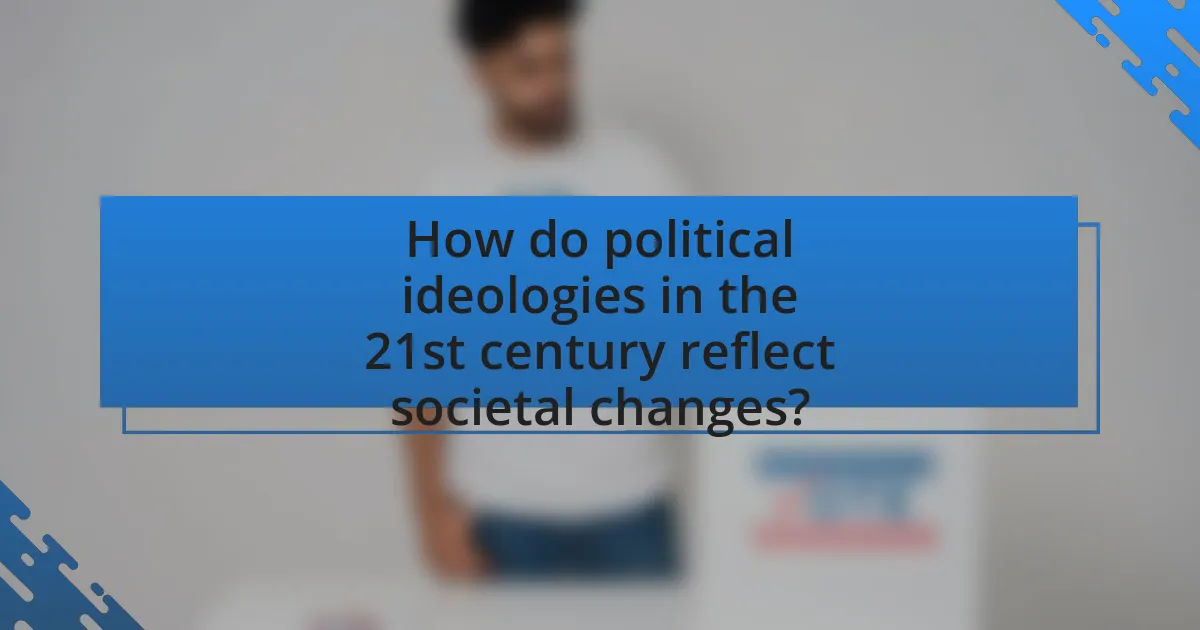
How do political ideologies in the 21st century reflect societal changes?
Political ideologies in the 21st century reflect societal changes through their adaptation to issues such as globalization, technological advancement, and social justice movements. For instance, the rise of populism in various countries illustrates a response to economic inequality and disillusionment with traditional political structures, as seen in the election of leaders like Donald Trump in the United States and Jair Bolsonaro in Brazil. Additionally, the increasing prominence of environmentalism within political platforms demonstrates a societal shift towards prioritizing climate change, evidenced by the Green New Deal proposals in the U.S. and similar initiatives worldwide. Furthermore, the growing acceptance of rights and racial equality has led to more progressive ideologies gaining traction, as reflected in the platforms of many contemporary political parties. These examples underscore how political ideologies are not static but evolve in direct response to the changing values and challenges faced by society.
What are the major social issues influencing political ideologies today?
Major social issues influencing political ideologies today include economic inequality, climate change, racial justice, and immigration. Economic inequality has led to a growing divide between the wealthy and the poor, prompting ideologies that advocate for wealth redistribution and social welfare programs. Climate change has spurred environmental movements that push for sustainable policies and regulations, influencing left-leaning ideologies focused on ecological preservation. Racial justice movements have highlighted systemic racism, shaping ideologies that emphasize equity and inclusion. Immigration debates have polarized political views, with some advocating for open borders and others supporting stricter immigration controls, reflecting broader concerns about national identity and security. These social issues are reshaping political landscapes and ideologies globally, as evidenced by the rise of progressive movements and the increasing polarization of political parties.
How does climate change affect political discourse and ideology?
Climate change significantly influences political discourse and ideology by shifting priorities towards environmental policies and sustainability. As scientific evidence of climate change becomes more prominent, political parties and movements increasingly adopt green agendas, leading to a polarization of views. For instance, in the United States, the rise of climate activism has prompted Democratic leaders to advocate for comprehensive climate legislation, while Republican leaders often express skepticism about climate science, reflecting a broader ideological divide. This ideological shift is evidenced by the increasing number of climate-related policies introduced in legislative bodies worldwide, such as the European Green Deal, which aims to make Europe the first climate-neutral continent by 2050. Consequently, climate change not only shapes policy discussions but also redefines party identities and voter alignments, as seen in the growing influence of Green parties in various countries.
What is the significance of identity politics in modern ideologies?
Identity politics plays a crucial role in modern ideologies by emphasizing the importance of social identities, such as race, gender, and sexual orientation, in shaping political beliefs and actions. This focus allows marginalized groups to advocate for their rights and interests, influencing policy-making and political discourse. For instance, the rise of movements like Black Lives Matter and rights has reshaped political agendas, highlighting systemic inequalities and demanding accountability from institutions. Research indicates that identity politics can mobilize communities, fostering solidarity and collective action, which is essential for addressing social injustices in contemporary society.
How do economic factors shape political ideologies in the 21st century?
Economic factors significantly shape political ideologies in the 21st century by influencing public policy, voter behavior, and party platforms. For instance, the rise of income inequality has led to the emergence of populist movements across various nations, as seen in the United States with the election of Donald Trump and in Brazil with Jair Bolsonaro, both of whom capitalized on economic discontent. Additionally, globalization has prompted a shift towards more progressive ideologies in many regions, as economic interdependence challenges traditional nationalist views. The World Bank reported that economic downturns often correlate with increased support for leftist parties, highlighting how economic conditions can drive ideological shifts. Thus, economic factors are central to understanding the evolution of political ideologies today.
What is the relationship between economic inequality and political beliefs?
Economic inequality significantly influences political beliefs, as individuals’ economic circumstances shape their perspectives on government policies and social issues. Research indicates that higher levels of economic inequality correlate with increased support for populist and authoritarian political movements, as those feeling economically marginalized often seek radical changes to the status quo. For instance, a study by Piketty, Saez, and Zucman in “Capital in the Twenty-First Century” highlights how wealth concentration leads to political polarization, with wealthier individuals favoring policies that protect their interests, while lower-income groups advocate for redistribution and social welfare programs. This dynamic illustrates that economic inequality not only affects individual political preferences but also contributes to broader ideological shifts within society.
How do economic crises influence shifts in political ideology?
Economic crises significantly influence shifts in political ideology by creating widespread discontent and prompting a reevaluation of existing political structures. During economic downturns, such as the 2008 financial crisis, many individuals lose faith in traditional parties and ideologies, leading to the rise of alternative movements and ideologies that promise reform and change. For instance, the financial crisis catalyzed the growth of populist movements across Europe and the United States, as disillusioned voters sought solutions outside the mainstream political spectrum. This shift is evidenced by the electoral successes of parties like Syriza in Greece and the rise of Donald Trump in the U.S., both of which capitalized on economic grievances to challenge established political norms.
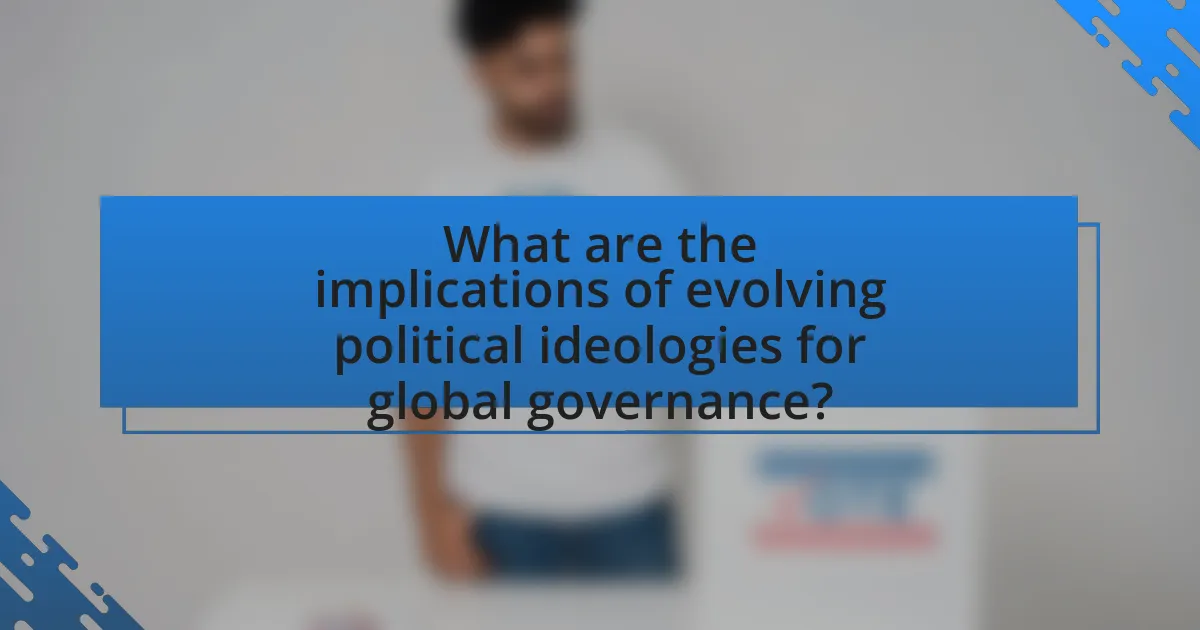
What are the implications of evolving political ideologies for global governance?
Evolving political ideologies significantly impact global governance by reshaping international cooperation and policy-making frameworks. As ideologies shift, they influence the priorities of states, leading to changes in alliances and the effectiveness of multilateral institutions. For instance, the rise of populism in various countries has resulted in a retreat from globalism, undermining collective efforts to address issues like climate change and trade. This trend is evidenced by the United States’ withdrawal from the Paris Agreement in 2017, which highlighted how domestic political shifts can disrupt global commitments. Additionally, the increasing prominence of authoritarianism challenges democratic norms and complicates consensus-building in international forums, as seen in the tensions between democratic and authoritarian states in organizations like the United Nations. Thus, the evolution of political ideologies directly affects the dynamics of global governance, influencing both the cooperation and conflict among nations.
How do changing ideologies affect international relations?
Changing ideologies significantly affect international relations by reshaping alliances, influencing diplomatic strategies, and altering power dynamics among nations. For instance, the rise of populism in various countries has led to a shift in foreign policy priorities, as seen in the United States under Donald Trump, where “America First” rhetoric resulted in a withdrawal from multilateral agreements like the Paris Climate Accord. This shift not only strained relationships with traditional allies but also emboldened authoritarian regimes that oppose liberal democratic values, thereby changing the global balance of power. Additionally, the resurgence of nationalism has prompted countries to prioritize domestic interests over international cooperation, impacting trade agreements and security alliances, as evidenced by Brexit’s implications for the European Union’s cohesion.
What role do ideological differences play in global conflicts?
Ideological differences are a significant catalyst for global conflicts, as they often shape national identities, influence political agendas, and drive social movements. For instance, the ideological divide between democracy and authoritarianism has led to numerous conflicts, such as the Cold War, where the U.S. and its allies opposed the spread of communism, resulting in military confrontations and proxy wars. Additionally, religious ideologies can exacerbate tensions, as seen in the Middle East, where sectarian divides between Sunni and Shia Muslims have fueled violence and instability. Historical evidence shows that conflicts rooted in ideological differences often lead to prolonged struggles, as seen in the ongoing tensions in regions like Eastern Europe and the Middle East, where differing beliefs about governance and social order continue to provoke unrest.
How can cooperation be achieved among differing political ideologies?
Cooperation among differing political ideologies can be achieved through dialogue, compromise, and shared goals. Establishing platforms for open communication allows diverse groups to express their views and understand each other’s perspectives, fostering mutual respect. Historical examples, such as the bipartisan efforts in the U.S. during the Civil Rights Movement, demonstrate that collaboration can lead to significant social progress when parties prioritize common objectives over ideological differences. Additionally, research indicates that inclusive decision-making processes, which involve stakeholders from various ideological backgrounds, enhance the legitimacy and effectiveness of policies, thereby promoting cooperation.
What challenges do evolving political ideologies pose for democracy?
Evolving political ideologies pose significant challenges for democracy by creating polarization and undermining consensus-building. As ideologies shift, they often lead to the fragmentation of political parties and the electorate, resulting in extreme viewpoints that hinder collaborative governance. For instance, the rise of populism in various countries has led to a distrust of traditional political institutions, which can destabilize democratic norms and processes. Additionally, the increasing influence of social media amplifies divisive rhetoric, making it difficult for democratic discourse to thrive. This fragmentation can result in legislative gridlock, as seen in the United States Congress, where partisan divisions have stalled critical policymaking.
How do extremist ideologies threaten democratic values?
Extremist ideologies threaten democratic values by undermining the principles of pluralism, tolerance, and individual rights that are foundational to democracy. These ideologies often promote authoritarianism, suppress dissent, and advocate for violence against those who hold differing beliefs, which directly contradicts the democratic commitment to free expression and civil liberties. For example, groups espousing extremist views may seek to dismantle democratic institutions, as seen in various historical contexts where authoritarian regimes have risen to power by exploiting societal divisions and fear, such as the rise of the Nazi Party in Germany, which dismantled democratic structures and led to widespread persecution. This erosion of democratic norms not only destabilizes societies but also fosters an environment where discrimination and violence can flourish, further threatening the integrity of democratic governance.
What strategies can be employed to counteract divisive ideologies?
To counteract divisive ideologies, promoting inclusive dialogue and education is essential. Engaging individuals in open discussions fosters understanding and reduces polarization, as evidenced by programs like the National Institute for Civil Discourse, which emphasizes constructive communication. Additionally, implementing critical thinking and media literacy education can empower individuals to discern misinformation, a key factor in the spread of divisive ideologies. Research from the Pew Research Center indicates that individuals with higher media literacy are less susceptible to extremist views. Furthermore, community-building initiatives that encourage collaboration across diverse groups can bridge divides, as demonstrated by successful interfaith dialogues that have reduced tensions in various communities.
What practical steps can individuals take to engage with evolving political ideologies?
Individuals can engage with evolving political ideologies by actively participating in discussions, educating themselves on diverse perspectives, and utilizing social media platforms for dialogue. Engaging in community forums or attending town hall meetings allows individuals to hear various viewpoints and contribute their own. Reading books, articles, and research papers on contemporary political theories enhances understanding and fosters critical thinking. Additionally, following reputable news sources and engaging with thought leaders on social media can provide insights into emerging ideologies. According to a 2021 Pew Research Center study, 72% of Americans believe that discussing political issues with others is important for understanding different perspectives, highlighting the value of dialogue in political engagement.
How can one stay informed about changes in political thought?
To stay informed about changes in political thought, one should regularly engage with diverse news sources, academic journals, and think tank publications. Consuming content from reputable outlets like The New York Times, The Economist, and peer-reviewed journals such as the Journal of Political Ideologies provides insights into evolving political theories and ideologies. Additionally, following influential political theorists and participating in discussions on platforms like Twitter or attending lectures and seminars can enhance understanding of contemporary shifts in political thought. Research indicates that exposure to a variety of perspectives fosters critical thinking and awareness of ideological changes, as highlighted in studies on media consumption and political engagement.
What role does civic engagement play in shaping political ideologies?
Civic engagement plays a crucial role in shaping political ideologies by fostering active participation in democratic processes and encouraging dialogue among diverse groups. This participation influences individuals’ beliefs and values, leading to the development of collective ideologies that reflect the needs and perspectives of the community. For instance, studies show that communities with higher levels of civic engagement tend to have more progressive political ideologies, as seen in the increased advocacy for social justice and environmental policies in areas with active grassroots movements. Furthermore, civic engagement initiatives, such as town hall meetings and community forums, provide platforms for citizens to express their views, thereby directly impacting the political landscape and ideological shifts.
